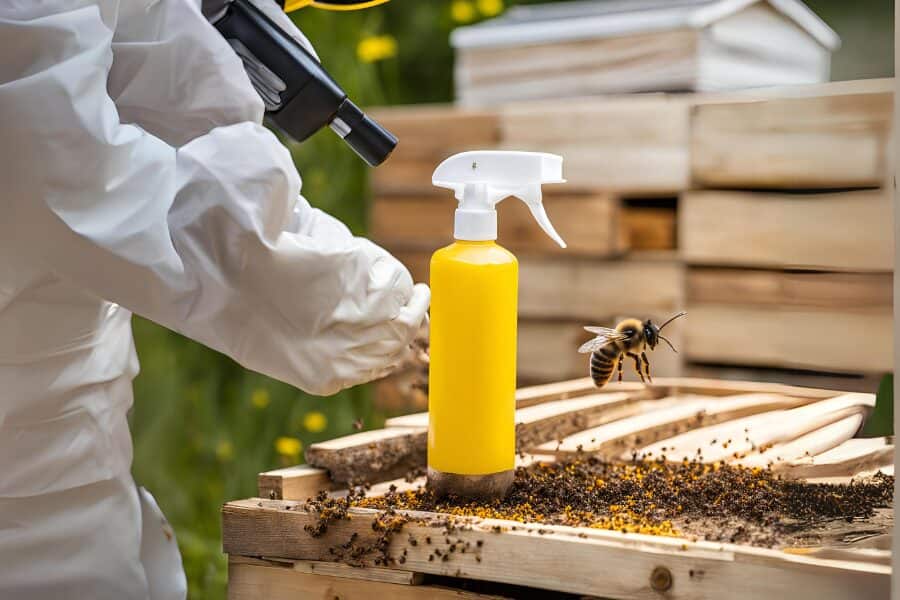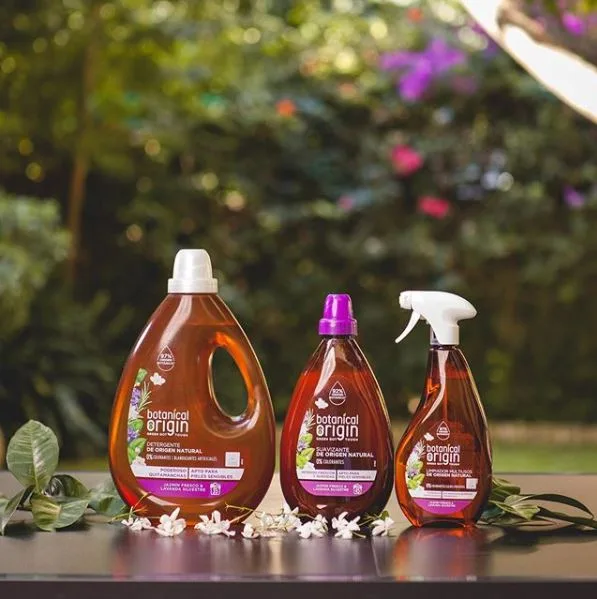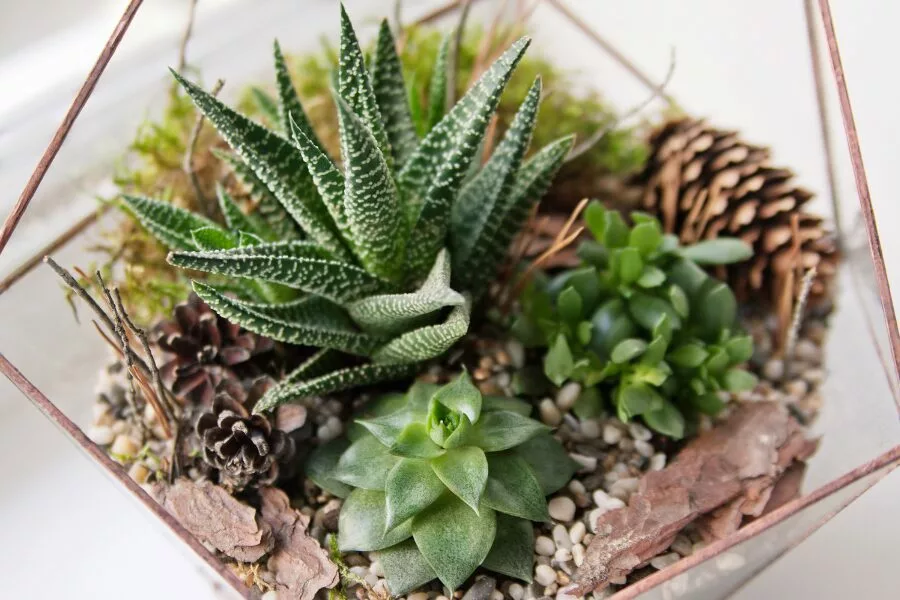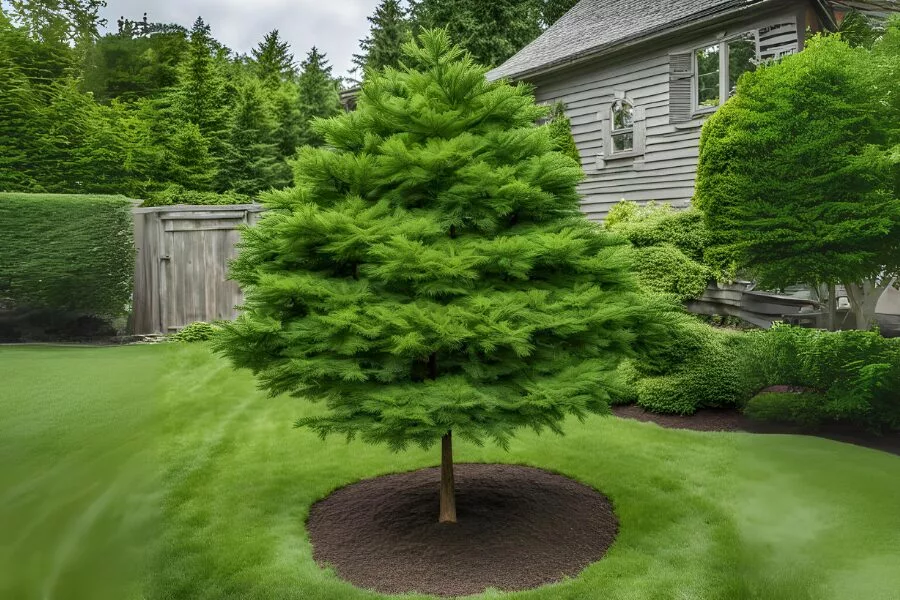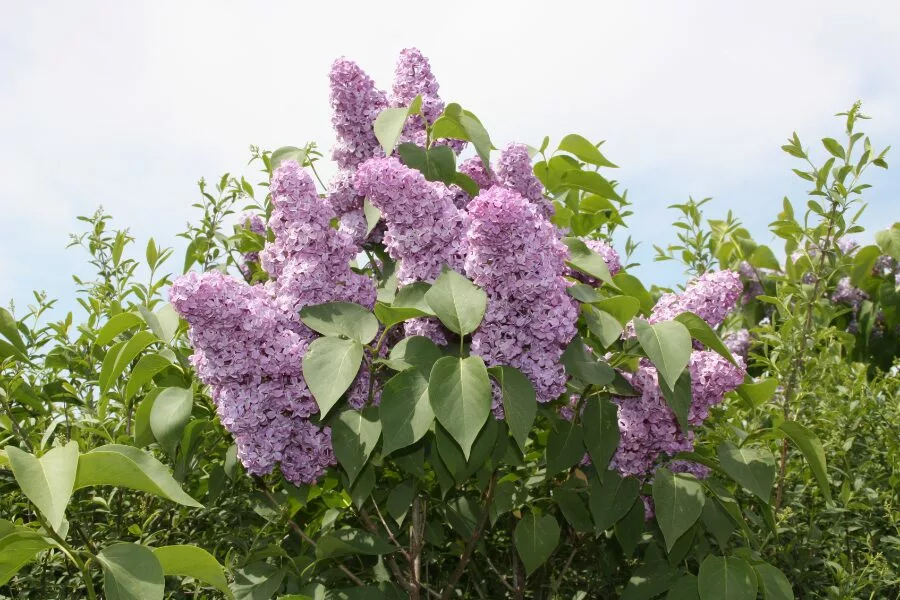Bees are ecological allies. While we tend to run in fear or stay as far away as possible from them, we can’t deny how great they are for the environment. Bees contribute to the pollination of plants and support biodiversity. However, they may sometimes be a nuisance or pose a risk due to allergies. The good news is that we can address these issues without harming them! This is where bee repellents come into play.
Bees play a vital role in pollinating flowers, which supports the growth of plants and crops. If we disrupt their population with harmful methods, that can have a lot of negative consequences for our environment. That’s why it’s important for us to use bee repellents that protect both the humans and the bees.
As the demand for safe, organic, and toxin-free alternatives grows, Ecowiser remains committed to sustainability and eco-friendly practices. So, in this article, we’ll explore some effective ways to make bee repellent at home while staying true to our eco-conscious values.
What Are Bee Repellents and Why Are They Needed?
Humans and bees have co-existed on the planet since the beginning of time. Bees play a crucial role in pollinating plants, which is essential for growing crops and maintaining biodiversity.
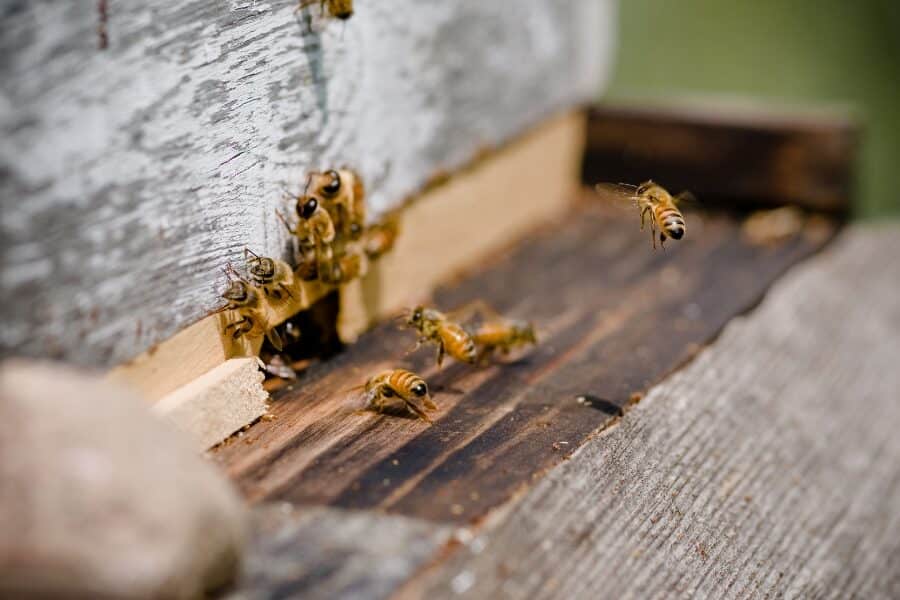
However, there are times when their presence can become problematic, especially when they build nests near human habitats or when individuals have severe allergies to bee stings.
Natural bee repellent for skin contain substances designed to deter bees from certain areas without causing them harm. They’re a more humane way to manage bee presence, making sure that humans are safe, especially those with severe allergies, while preserving the bees so they can continue playing their essential role in our ecosystem.
Traditional repellents usually have harsh chemicals, but organic bee repellents are made from natural ingredients and are designed to be safe for both the environment and the bees themselves. That’s why we choose safe bee repellent for skin any day!
Why Get Rid of Bees?

While bees are important for the environment, they can sometimes invade our living spaces, causing discomfort or posing risks, especially for people with severe allergies. Ensuring a safe distance helps prevent unwanted encounters and maintains harmony between humans and bees.
Potential Damage Caused by Certain Bee Species
Some bee species can cause structural damage to homes or become aggressive, making it necessary to manage their presence carefully.
For example, Carpenter Bees are known for their ability to burrow into wood, which can weaken structures over time. They do not eat wood but create tunnels for nesting, which can result in significant damage if not managed properly.

On the other hand, there are certain bee species like the Africanized Honey Bees, which are more aggressive and pose a greater risk to humans and pets. Managing their presence helps to prevent potential harm.
Choosing a harmless and organic bee repellent home remedy will make sure that bees are repelled safely and ethically, aligning with our values as eco-conscious consumers. These repellents are a humane solution, making sure we protect the pollinators and ultimately, the environment.
Traditional vs Organic Bee Repellents
Traditional bee repellents often rely on toxic chemicals that can harm bees, other insects, and even humans. These chemicals can lead to the death of bees, which negatively impacts the ecosystem.
Organic or homemade bee repellents, on the other hand, use natural ingredients to create a barrier that deters bees without poisoning them or disrupting the ecosystem. They are safer, more sustainable, and align with our eco-friendly practices.
Natural bee repellents offer many benefits:
- They are safer for humans, pets, and beneficial insects.
- They minimize environmental impact by avoiding harmful chemicals.
- They are often more sustainable and eco-friendly.
- They support biodiversity by protecting bee populations.
- Using these repellents ensures that you can keep your living space safe and bee-free without contributing to the decline of these essential pollinators.
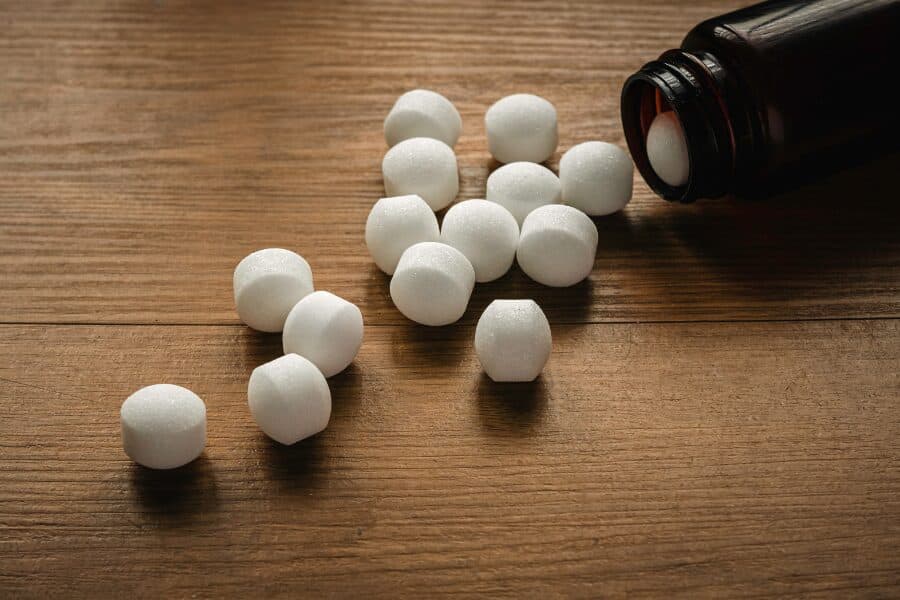
Natural Bee Repellent: Top 5 Home Methods
Vinegar: Bees have a strong sense of smell, and the pungent odor of vinegar is unpleasant to them. acidity of vinegar disrupts their ability to communicate through pheromones, making the area less attractive for them to inhabit.
- How to Use: Mix equal parts water and vinegar in a spray bottle. Spray around the beehive and on flowers near your home.
- Note: This method works well but may be less effective for large bee swarms.
Mothballs: Mothballs contain naphthalene or paradichlorobenzene, chemicals that emit a strong odor repulsive to bees and many other insects. These chemicals interfere with bees’ sensory receptors, making the environment hostile for them.
- How to Use: Hang mothballs around your home and near bee nests. The strong smell will discourage bees.
- Note: Ensure the mothballs are placed out of reach of children and pets.
Mint: Mint plants produce a strong, refreshing aroma that bees and many other insects find unappealing. The menthol in mint disrupts their ability to navigate and communicate, driving them away from the area.
- How to Use: Plant mint shrubs around your home or use potted mint plants.
- Note: Mint’s strong scent naturally repels bees and other insects.
Bee Repellent Plants: These plants produce essential oils and compounds with strong odors that bees dislike, making it a great bee repellent home remedy. For example, citronella contains citronellal, which repels bees, while eucalyptus produces eucalyptol, which also acts as a deterrent.
- How to Use: Grow plants like Neem, Cloves, Citronella, and Eucalyptus around your garden.
- Note: These plants not only repel bees but also enhance your garden’s aesthetics.
Cinnamon: Cinnamon has a strong, spicy aroma that bees find overwhelming and unpleasant. The scent masks the pheromones bees use to communicate, making the area less attractive for nesting.
- How to Use: Sprinkle cinnamon around the hive to encourage bees to relocate.
- Note: Effective for non-lethal management and safe for bees.
Make Your Own Bee Repellent at Home
Creating your own bee repellent home remedy allows you to control the ingredients and ensure it’s free from harmful chemicals. Here’s a simple recipe for a natural bee repellent spray.

Ingredients:
- Spray bottle
- Dr. Bronner’s Pure-Castile Liquid Soap (peppermint or unscented)
- Water
- Peppermint oil
- Cinnamon
- Cayenne pepper
Directions:
- Combine 2-3 teaspoons of liquid soap with water in a spray bottle.
- Add a few drops of peppermint oil.
- Add 1/8 teaspoon of cinnamon and 1/8 teaspoon of cayenne pepper.
- Spray around doors, windows, decks, patios, and other outdoor areas.
Note: Test surfaces before spraying your homemade bee repellent indoors and avoid direct contact with bees to prevent agitation.
Best Organic & Toxin-Free Bee Repellents

Citrus Carpenter Bee Repellent Spray
Best Bee Brothers’ Citrus Carpenter Bee Repellent for house effectively deters carpenter bees with natural ingredients like lemongrass and citronella oils.
Easy to apply, just spray around potential nesting sites to prevent bee infestations. Perfect for eco-conscious homeowners looking to protect their property naturally.
This eco-friendly spray provides long-lasting protection for wooden surfaces without using harsh chemicals. Packaged in recyclable bottles made from reclaimed ocean plastic, it reflects the brand’s commitment to sustainability.

Natural Peppermint Carpenter Bee Repellent
EcoVenger’s Natural Peppermint Carpenter Bee Repellent for house offers a safe and effective solution for keeping bees away from outdoor spaces.
The bee and wasp repellent spray is easy to apply and perfect for eco-conscious homeowners seeking a non-toxic method to manage bee presence.
Infused with peppermint oil, this eco-friendly spray naturally deters bees without harming them. Ideal for use around decks, patios, and gardens, it provides a long-lasting protective barrier.
Safety Tips for Using Bee Repellents
We recommend using repellents in areas where children and pets are not likely to come into direct contact. Also, make sure the product is safe for the environment and follow all usage instructions given.
Environmental Considerations
In order to be truly eco-friendly and do our best for the environment, it’s best to choose products that are biodegradable. We also recommend avoiding products that may harm these beneficial insects.

Summing Up!
Ecowiser is dedicated to advancing eco-friendly practices by advocating for the use of natural and toxin-free products. Our mission is to support sustainable living while protecting the environment.
Organic and toxin-free bee repellents align with our values of environmental stewardship and sustainability. Choosing these products helps preserve bee populations and promotes a healthier planet.
We encourage you to try our DIY bee repellent recipe and explore eco-friendly products to keep your home bee-free while protecting our precious pollinators.
Frequently Asked Questions
How can I make a bee repellent at home?
To make a bee repellent at home, combine 2-3 teaspoons of Dr. Bronner’s Pure-Castile Liquid Soap with water in a spray bottle. Add a few drops of peppermint oil, 1/8 teaspoon of cinnamon, and 1/8 teaspoon of cayenne pepper. This bee repellent home remedy spray can be used around your house and garden to keep bees away naturally.
What is the best bee repellent for skin?
When looking for a bee repellent for skin, choose a toxin free bee repellent that uses natural ingredients like essential oils. These repellents are safe for human skin and effectively keep bees at bay without causing harm.
Are there any effective bee and wasp repellent sprays?
Yes, there are several organic and toxin-free bee and wasp repellent sprays available on the market. These bee and wasp repellent sprays often use natural ingredients like peppermint oil, citronella, and eucalyptus to repel bees and wasps without harming them or the environment.
What plants can be used as natural repellents?
Certain plants act as natural repellents. Bee repellent plants like Neem, Cloves, Citronella, and Eucalyptus can be planted around your home or garden to keep bees away. These plants emit scents that bees dislike, providing an eco-friendly solution to manage bee presence.
How do I safely use bee repellent spray outdoors?
To use an outdoor bee repellent spray safely, apply it around areas where bees are likely to gather, such as doorways, windows, decks, and patios. Ensure that the outdoor bee repellent spray is natural and toxin-free to avoid harming bees and other beneficial insects. Always follow the product instructions and avoid spraying directly at bees to prevent agitation.
